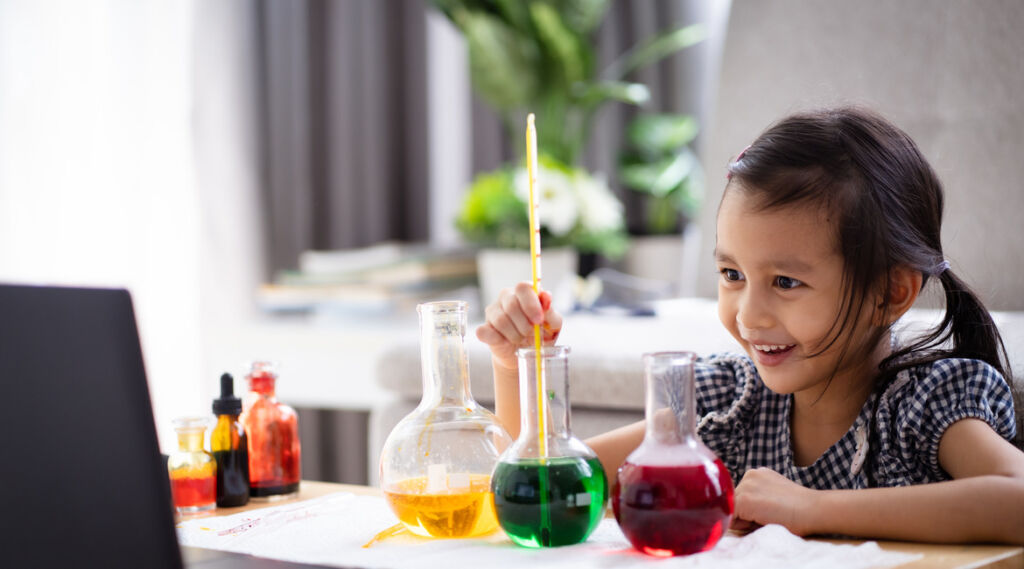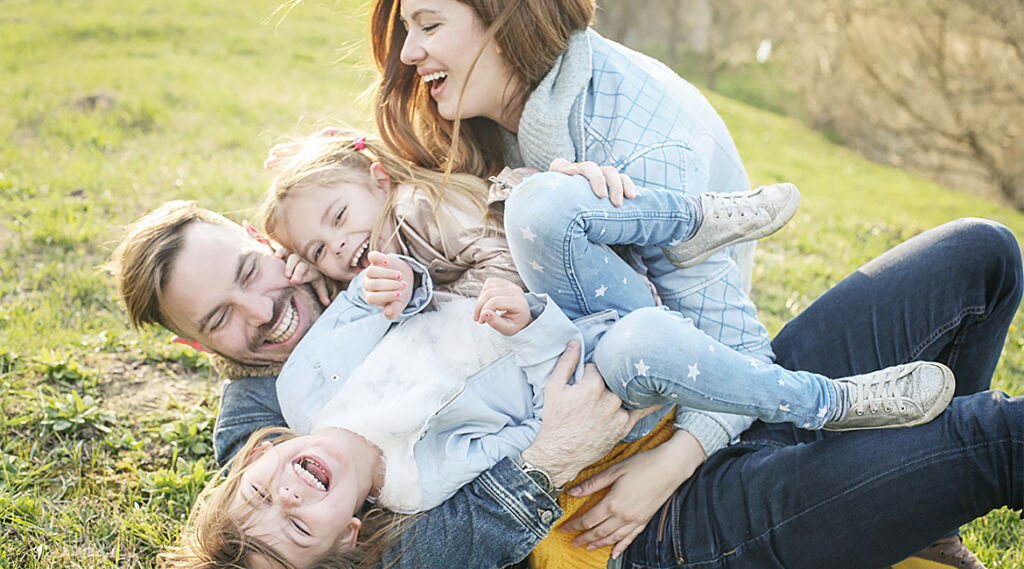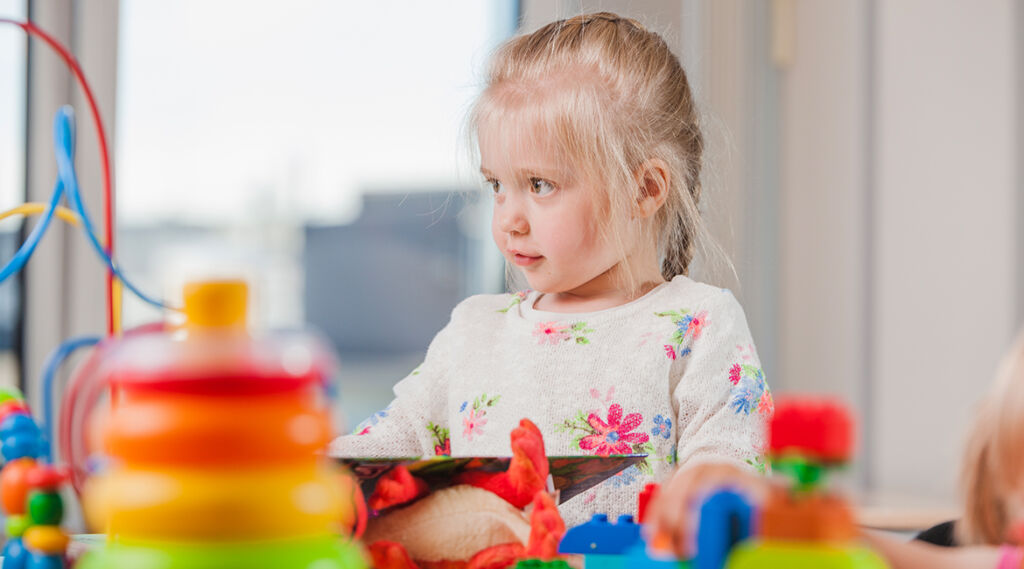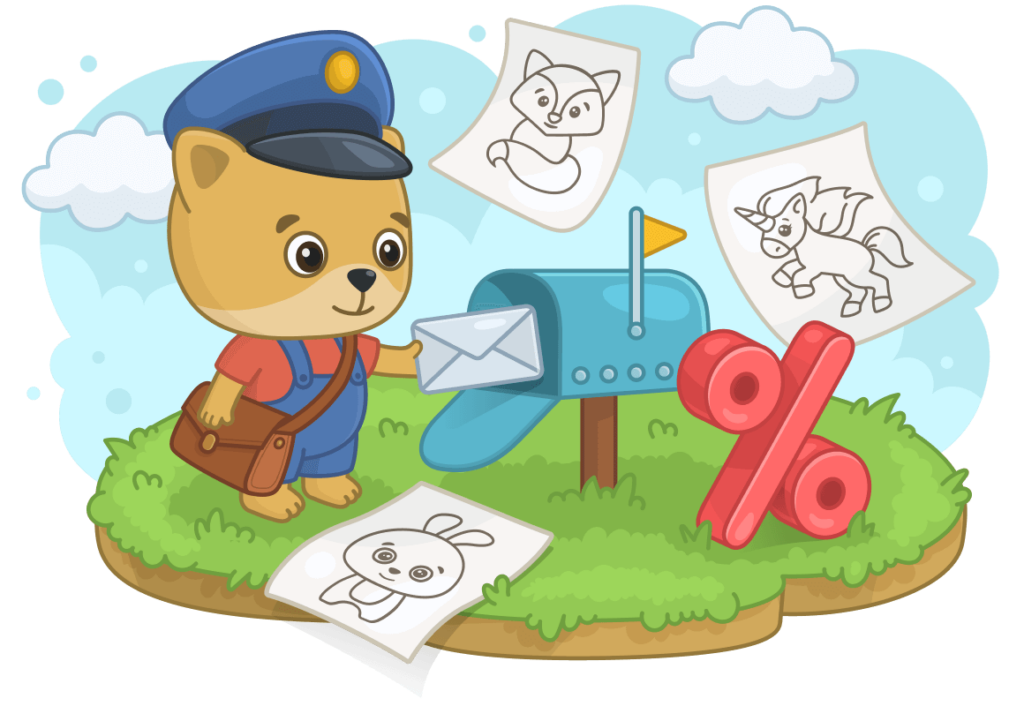What is Social-Emotional Learning?
Recently, Social-Emotional Learning, a new curriculum, was added to many preschools and daycares. Social-Emotional Learning is a set of skills that enables children to make responsible choices, manage big feelings, identify and maintain positive relationships, show empathy, and choose and achieve goals. Little ones do not need to be in a classroom to benefit from Social-Emotional Learning; lessons can be introduced and reinforced at home.
What are the Benefits of Adding SEL into Your Little One’s Day?
Educators and professionals who work with young children agree that integrating SEL into young children’s lives sees many benefits. For example, children involved in SEL activities see less emotional distress.

As a result, these children have better emotional regulation. Children who have experienced SEL work at a young age also report higher self-esteem and achieve more substantial academic success. They also see more positive social behavior well into their teen years.
Can You Incorporate Social-Emotional Learning?
It is easy to incorporate Social-Emotional Learning in your home. At the toddler and preschool stage, SEL activities can be kept simple. Here are a few ideas you and your little one can do together around your home to incorporate SEL:
- Create a feelings chart: Young children often find difficulty using words to describe how they feel but can quickly point to a picture of a child expressing the same feeling. Together, cut pictures from magazines and newspapers of faces representing a wide range of emotions. Paste the faces onto a larger piece of paper and label them with simple words like “happy, “sad,” “angry, and “excited.” Be sure to check in with your child during the day, especially when nothing significant is happening, so s/he has practice pointing to the face that matches their emotion. This activity helps children manage big feelings.
- Create a set of Emo Dolls: Using paper towel rolls, stand each on one end and draw a face on the other. Cut the tubes, resulting in different heights. Give the faces different emotions. Young ones sometimes have difficulty relating an emotional story but can more easily act it out using dolls. So, keep a set on hand for your kids to use if they need to ‘act out’ an emotional issue. This activity helps children identify and maintain positive relationships and manage big feelings.
- Hold a Morning Meeting: Little ones want some control over their day from a young age. When adults tell little ones what to do all day, kids may experience big feelings they can’t easily express. Give them a say in their day. Let the kids know what to expect, and give them some acceptable options each day. This activity encourages responsible choice-making and models empathy.
- Create a Calm Down Corner–together: It is important to note upfront that a Calm Down Corner is NOT a spot for Time Out, and it is not disciplinary. The Calm Down Corner –which does not have to be a corner; it can be any cozy spot–is a place kids can go when feelings are looming large and overwhelming. An adult may ask if the child would like some Calm Down Corner time, and the key is to make the Calm Down Corner a cozy, quiet, inviting spot where a child can breathe and relax. Let your child put comfort items there, such as a bucket of books, pillows, blankets, a stuffed animal, crayons, and paper. The area should be a spot for taking a deep breath and restarting, not watching TV or video games. This activity encourages making responsible choices and managing big feelings.
- Stock a Social-Emotional Learning Library in your home: toddler and younger kids relate to strong, bright colors and animals as lead characters. Some great topics for little kids are picture books about anger and worry, learning the word ‘yet,’ and books that associate feelings with color. These books teach empathy and management for big feelings.
What is the Concluding Evidence?
According to the Journal of Emotional Education (published through the University of Malta), “Research demonstrates that the inclusion of SEL in preschool years can foster positive attitudes towards life, school, and academic success” (Volume 13, number 1, April 2021). Social-Emotional Learning for Little Kids is highly beneficial to them, with positive effects that last throughout their lives.



